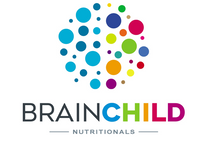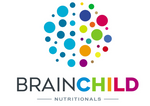Is Your Smart Child Struggling in School?
Raising a child with ADHD can be a dizzying process: trying to balance school, tutoring, family activities, and find ways to help your child stay calm and focused at the same time! ADD/ADHD attention difficulties are most often treated using medication, school programs or tutoring. But despite all these efforts, many parents see little improvement in the learning disabilities at the heart of the problem. You may be surprised to learn how much good nutritional support can help. Studies show that targeted nutrition for ADHD can result in significant symptom improvement.
ADHD involves neurotransmitter imbalances. Often, children with ADHD also have deficiencies or imbalances in critical nutrients that are used to make these neurotransmitters in the body. If we test children with ADHD, we often see that they are not very efficient at digesting and utilizing their food, and may even have parasites, candida or other signs of more serious gut imbalances.
Supporting the nutritional needs of a child with ADHD can really help educational and behavior interventions “stick”. Solid nutritional support for ADHD includes support for the brain, gut and metabolism. We want to help you find great nutritional tools to help balance your child’s body. On this page, you will learn about all natural adhd supplements that are nutritional support for ADHD.

This is why we have developed the
ADHD Multi Kit!
This kit includes the basic and all natural adhd supplements needed, in child-friendly, easy-to-use forms
1. A Daily Helping Diet of Vitamins
2. A Daily Helping Diet of Mineral Support
3. Probiotics
4. Fish oil
More Information about Vitamins and ADHD
B-Complex Vitamins
All the vitamin B works together synergistically to support critical functions in the brain. All of the B-complex vitamins are co-factors to each other – that is, they help each other to be absorbed and utilized properly by the body. In studies, B-complex vitamins have been shown to reduce hyperactivity symptoms and increase serotonin in children with ADHD, resulting in calmer, happier children! (2)
Vitamin B6
B6 is necessary for the production and utilization of neurotransmitters which help regulate mood and brain function. Symptoms of vitamin B6 deficiency include irritability, short attention spans and short term memory loss. Vitamin B6 autism is a well known disorder that depends on its intake and digestion. B6 also helps with carbohydrate metabolism, which can help reduce carb cravings and crashes. Shown in studies to improve hyperactivity symptoms. (1), (2)
Vitamin B3
Vitamin B3 may help reduce the severity of behavioral problems, loss of cognitive function and hyperactivity that commonly accompany ADHD. This vitamin also calms your nervous system, so it may curb restlessness and irritability. Vitamin B3 helps with delivery of magnesium, vitamin C, zinc and calcium to the brain.
Vitamin B12 is needed in the body for making and regulating neurotransmitters. Involved in the production and maintenance of the myelin sheath (the protective coating on nerve cells, the "wiring" of the brain), essential fatty acid metabolism and energy production. Vitamin B12 deficiency produces some ADHD-like symptoms such as confusion and memory loss.
Vitamins B1 and B2
Vitamin B1 and B2 help deliver glucose to the nervous system and brain. Glucose is the brain's "fuel", and these vitamins help make sure it has a steady supply
Vitamin C
Studies have shown vitamin C to improve cognition and alertness. Vitamin C is heavily concentrated in the brain and crucial to brain function. The earliest sign of vitamin C deficiency is confusion and depression.
Antioxidants
Antioxidants, such as Vitamin A, C and E and Bioflavonoids, protect the cells from damage caused by oxidative stress. Oxidative stress can damage fats, and its main target is the brain. People under a lot of stress, like our kids with ADHD, have particularly high needs for antioxidants, to help support their body in dealing with the effects of stress.
More Information about Minerals and ADHD
Magnesium
85% of all Americans are deficient in magnesium. Magnesium is very calming, and has been called the “anti-stress” mineral. Low magnesium and stress reinforce each other: Stress of any kind lowers magnesium levels, and low magnesium levels increase stress on the body. In studies, children with ADHD who were deficient in magnesium showed significant improvement in hyperactivity after taking magnesium supplements (3), (10).
Magnesium is essential for energy production, cell replication and integrity, detoxification, glutathione synthesis, muscular/neurological function, and maintaining body pH balance. Magnesium deficiency has long been thought to play a significant role in the auditory sensitivity or insensitivity common with children with ADHD. This may occur with a predominance of calcium that can create a magnesium deficiency, facilitating an increased release of glutamate, and resulting in an over-stimulation of the auditory nerve.
One great way to add extra magnesium to your child’s life is to add a cup of calming Epsom Salts to their bath, as a gentle way to start slowing down for bedtime at night. Epsom Salts (Magnesium Sulfate) are safe and non-toxic, but please do not allow your children to drink the bath water.
Zinc
Zinc is an important factor in the metabolism of neurotransmitters, prostaglandins, and for maintaining brain structure and function. The expression, "No zinc, no think" is not without merit. Many studies have shown that zinc supplementation is helpful with memory, thinking and I.Q. Dopamine is one of the most important factors in the pathophysiology of hyperactivity disorder, and the hormone melatonin has an important role in the regulation of dopamine. Because zinc is necessary in the metabolism of melatonin, it makes sense that zinc is a very important factor in the treatment of attention deficit and hyperactivity disorder (ADHD). Oysters are a particularly rich food source of zinc.
Studies have shown behavioral improvements in response to zinc supplementation. In one six-week double blind and placebo controlled study, children taking 15mg of zinc sulfate + methylphenidate scored significantly higher on a Parent and Teacher Rating Scale than those taking methylphenidate alone. (4) Another study showed significant behavioral improvement when children were given all natural adhd supplements of zinc, magnesium and calcium (10).
FISH OIL
Essential Fatty Acids (EFAs) help with brain and nerve development, cellular communication, oxygenation, metabolism and immune response. In children with ADHD, Omega-3 EFAs such as DHA and EPA are particularly important for the brain, the immune system, and to help fight inflammation. Many studies show that EFA supplementation can also help with positive mood and attention. (5) EFAs are considered "essential" because they are needed throughout the human life cycle, cannot be produced in the human body, and therefore must be provided through the diet.
PROBIOTICS
Unlike in Autism, most children with ADHD do not exhibit gut symptoms. However, according to Dr. Michael Lyon in his book Is Your Child's Brain Starving? (9), most people with ADHD have little good bacteria and high amounts of harmful bacteria in their stomach. Dr. Lyon conducted research on 75 patients with ADHD and discovered that a third of the children in his study had pathogenic yeast, or harmful bacteria. Dr. Lyon believes that by adding probiotics to the diets of individuals with ADHD, the potentially harmful bacteria will decrease and the symptoms of ADHD will also be reduced.
For this reason, it makes sense to include a good broad-spectrum probiotic in the all natural adhd supplements regimen of any child with ADHD. Any child with ADHD who improves when starting probiotics, or shows gastrointestinal symptoms such as diarrhea, constipation, bloating or gas should be tested for parasites and other intestinal problems, and may benefit from the use of a more intense probiotic. A great test to learn more about gut issues is called a CDSA (Comprehensive Digestive Stool Analysis with Parasitology), available from Direct Labs and many naturopathic doctors (ND's).
ADDITIONAL NOTES:
Iron and calcium may be beneficial to some individuals with ADHD.
IRON - Please have your practitioner measure your child's iron levels. Iron deficiency has been associated with ADHD, but iron supplementation is inappropriate unless iron levels are found. Iron supplementation should be monitored with regular testing.
CALCIUM - Most children would benefit from 1000 mg a day of calcium, in a citrate or other well-absorbed form. Calcium is calming, and supplementing it at bedtime be a great addition to the night time routine of getting ready for sleep. Our vitamins and minerals are not intended as a calcium supplement. Please avoid Calcium Carbonate, as it does not absorb well, and has been known to have high levels of lead.
Please consult your doctor before changing your current medications or nutritional program.
*ADHD in the product name stands for "A Daily Helping Diet vitamin support" or "A Daily Helping Diet mineral support" not to be confused with the condition of ADHD ( Attention Deficit and Hyperactivity Disorder)
REFERENCE STUDIES






